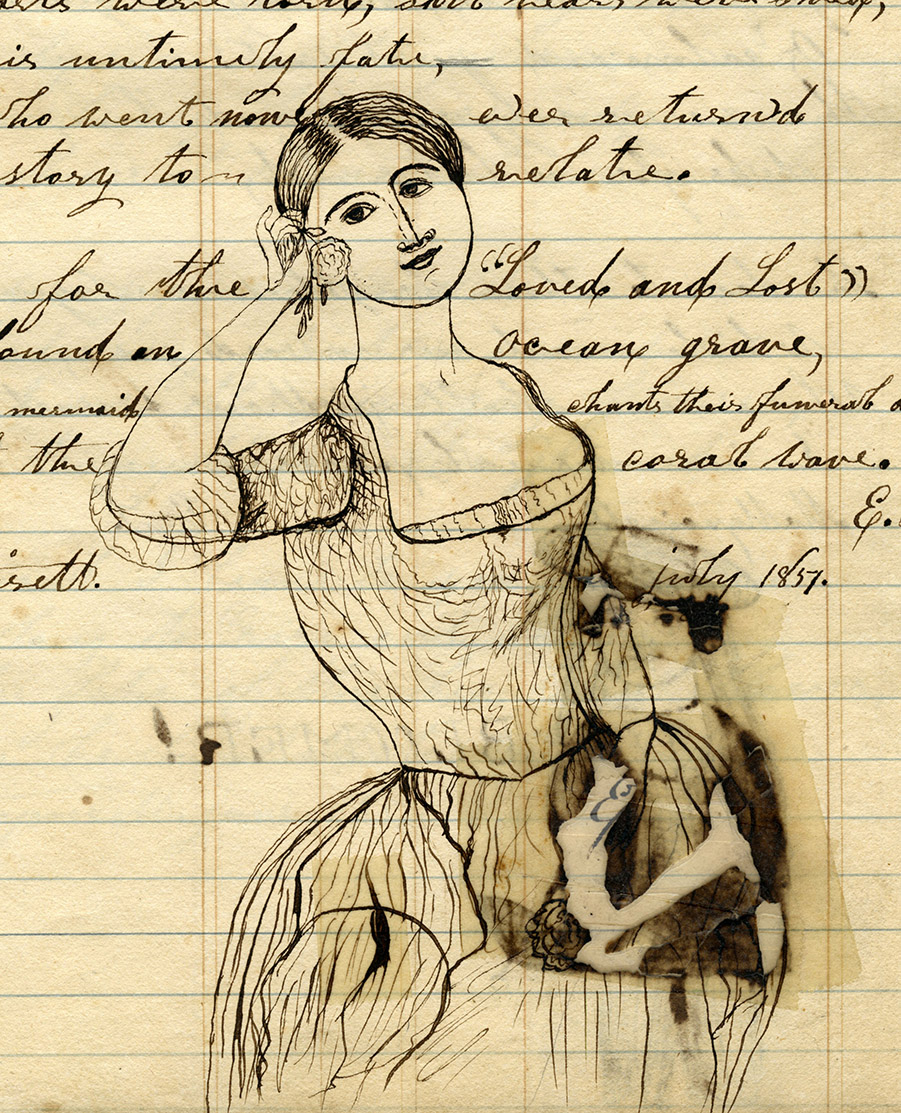Ephraim Snow Daybook

The wheelwright Ephraim Snow was born in Rochester, Mass., on Sept. 9, 1821, the son of Samuel and Rhoda (Stewart) Snow. Apparently beginning as a general carpenter, he moved to neighboring Mattapoisett shortly after 1850, where he worked as a wheelwright for many years. He married Silvia A. Nickerson on July 1, 1858, who died after giving birth to their fourth child in 1874. Ephraim Snow appears to have died in Mattapoisett in either 1880 or 1881.
This unusual daybook offers an intimate glimpse into the lively shipbuilding and whaling village of Mattapoisett as these industries peaked and begin to decline. The earliest portions of the books include sparse accounts apparently kept by Samuel Snow, Ephraim’s father, with Ephraim’s day book covering the period 1842-1878. Most of his work involved repairing or manufacturing wagon wheels or shafts, but he applied his skills quite widely in repairing wheelbarrows, chairs, cradles, and boxes, hanging doors or doing general house carpentry, and taking boarders in his home. Interspersed in the volume are a large number of poems, a few nicely rendered pen and ink drawings, and a small handful of letters.

